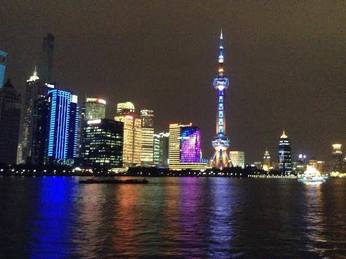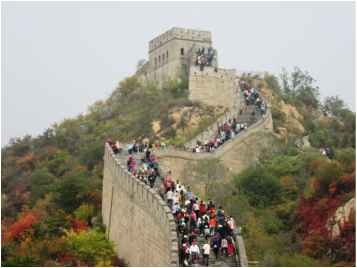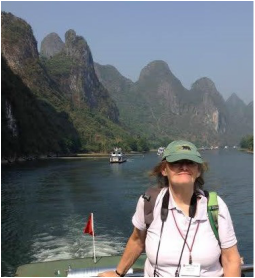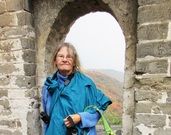Darn, I dropped the pillowcase on the floor. How did Hamlet feel when he learned he'd killed Ophelia's father? Why didn't he tell her he was sorry? Do writers who are famous do their own laundry? I need to add more money to my laundry card.
Just thinking about my characters and knowing I'm going to write about them makes me happy. There are 35 minutes between the time I get upstairs and the time I have to go back down to get the laundry. I can get some writing done.
Lancelot sits in my living room. She is a quiet presence. Her demeanor is seldom cheerful. I see her frowning because Guinevere is married to someone else. Lancelot sighs. I sigh with her. I take my dirty dishes to the kitchen and wash them.
Lancelot is still in the living room when I come back. She feels cramped indoors. So do I, although I can't ride a horse as well as she can, and in fact I'm afraid of horses. But my legs long to go to the river and walk. I need to put at least one headline in my blog so that readers with a short attention span will want to continue reading. That's what the social media teacher says, so here goes.
Lancelot Is Lonely
How can I describe Lancelot? Does it matter whether she is handsome? She ages. She weeps sometimes when she is alone. Guinevere knows that, and it makes her sad, even though her temperament is not naturally as sad as Lancelot's.
I wouldn't want to live without Lancelot. I can't. She's part of me.
She may not be the most contemporary heroine. She may not be struggling with issues like today's racism. But she knows all about war, and she has seen poverty. She has witnessed suffering, and shared in it.
Unlike me, she has killed. There are circumstances in which I would kill. In self-defense, if the only way to defeat my assailant was to kill him. To protect someone I love whose life was threatened. If I could.
It's sad that Lancelot has killed, but not that she has the skill to do so.
I don't have food for dinner. I have to go to the market. I'm lucky to live near a market. I need to make a shopping list. Why do I write fantasy? To escape the ordinary?
I'm out of paper towels, but I have enough toilet tissue.
How do I portray a King Arthur who is a good king, but who cares too much about power? Don't all kings – and presidents – care too much about power? Power over others, that is, not empowerment.
How does power affect those who have it? Can anyone with great power remain a good person?
Where are the car keys? Is my grocery list complete? Did I forget anything? Do I need more mayonnaise? Which night am I going out to dinner? Tomorrow?
Lancelot still looks sad.
Should I work on the Hamlet play, or go back to the Lancelot sequel? What a wonderful choice. But I must work on whichever is closest to being done. Finishing what I start has to be one of my most important values.
I forgot the laundry. I have to take a detour to the basement. The basement is plain, utilitarian. But what difficulty Lancelot must have had cleaning her menstrual rags without anyone seeing her. No, she probably buried them.
She's just posing as a man. She doesn't want to have a man's body. How wonderful that she has developed her strength and can defeat evil men.
I shouldn't have stopped taking karate after a few months. Decades ago. I've been fortunate that I haven't had to defend myself physically.
A friend of mine in the building was once confronted by a knife-wielding man in this basement, years ago. She was lucky. She got away unscathed. But the man wasn't caught.
Danger can come at any time. Lancelot knows that.
I fold my T-shirts and put the polo shirts on clothes hangers. Women must have died from abortions in Lancelot's day, as they still do today. I put the smaller items in a bag. I sling my pants over the arm of the laundry cart, then over my shoulder. I pick up the bag and go upstairs. I lay the pants on a chair and put the bag in the bedroom, then I go downstairs to get the shirts.
Would Lancelot have joined the feminist movement if she lived today? Guinevere would.
I carry the rest of the clothes upstairs. Lancelot liked wearing chain mail, but I wouldn't have liked it. I don't have the strength to use the kind of sword she would have used.
Her sword was not taken from a maiden in a lake. It was just an ordinary sword, but she was extraordinary.
I'm not Lancelot, but I do wear pants, because I don't want to play the female role. I want to be androgynous.
Lancelot is still in the living room when I return.
I guess I'm working on Lancelot today, not Hamlet. Here's a link to my first novel about Lancelot: www.amazon.com/Lancelot-Story-Carol-Anne-Douglas ebook/dp/B017A4L28C/ref=sr_1_1s=books&ie=UTF8&qid=1467153435&sr=1-1&keywords=
lancelot+her+story




 RSS Feed
RSS Feed